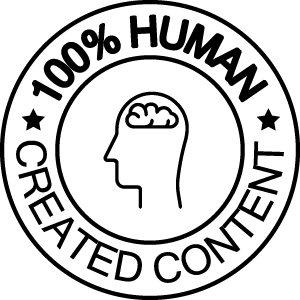Bias and ethical dilemmas have been around since the dawn of humanity. As we go through life, we are constantly confronted with impossible decisions. While some choices may be better than others, many times there is simply no clear-cut right answer. Morals depend on the person. Are you ethical? Is AI ethical?
What happens when Artificial Intelligence (AI) grabs the ropes of major ethical and moral decision-making? What happens when we start letting a dead, soulless machine that lacks all forms of empathy and emotional intelligence ponder our personal dilemmas?
Depending on your personal stance, the answer can be either devastatingly bad or… pretty good. The machine knows how to optimize right? By that logic, then we should trust the machine because it will minimize the amount of bad decisions.
However, we know that AI is not perfect. It is biased, and it lacks empathy. In this article, I will delve deeper into the core issue of ethics in AI. Its bias and its decision-making – and try to answer the question: Is AI Ethical?

The Inevitable Bias of Artificial Intelligence
People are biased, and as a result, the internet is biased.
AI feeds off of massive quantities of data that are snatched from the internet – and the result naturally results in inevitable bias. AI language models such as ChatGPT is fed “white male data,” and therefore struggle to make neutral decisions that put women, minorities, and LGBTQ+ individuals in the same light as a cis-het white man.
The best way to easily portray bias on the internet is a simple 2-way google search with the famous schoolboy/girl example. First, we’re going to google “school boy” in Google Images and look at the results.
As you can see, the results are fun and happy children in school uniforms. A couple of drawings, a humorous photo of school boys in skirts, and a stock image of an appropriately aged boy looking ready for class.

Next, we will google “school girl”. Although the only variable in the wording was gender, we see a huge shift in our search results. We’re all of a sudden seeing an array of sexualized women posing for a male-gazing audience.

No matter how much OpenAI, the creators behind ChatGPT, might “claim” transparency and open work on an unbiased engine – results show differently. It is simply almost impossible to create an unbiased engine because it’s just not how the world works.
Now that we know AI and the internet is biased, how does this translate into ethics?
Moral Philosophy: Is AI Ethical?
For many years, there have been well-known philosophical inquiries like the trolley problem. However, if faced with a scenario like this in reality, how would an actually AI react?
A fully autonomous car run by Artificial Intelligence can calculate the percentage of survival in the case of a crash in just a split second. In that split second, it makes a decision that can sometimes be the difference between life and death.
To put this into perspective, let’s formulate a situation where you’re in the passenger seat of a self-driving car. You’re going about 35 miles/h down a suburban main street when all of a sudden the brakes of the car give out.
Unfortunately, as you approach a stop sign, a mother, her child, and their dog begins crossing the street a short distance ahead. Your car realizes that if it goes straight, it will kill both the mother, child and dog. However, it can swerve a little to the right which would only kill the child and dog, or it could swerve to the left into a parked car which would kill you and the mother but save the child.
What does it do?
Is there a right answer?

Artificial Intelligence is designed to optimize every aspect of its design, data, and related decision-making – but that is not how the world works. We make decisions out of empathy, emotional intelligence, and experiences that we have built up over time. We act on our morals, core values, and life lessons.
Artificial Intelligence is acting out of optimization. Percentages and numbers based on data it has been fed. Now that we know this data is biased and sometimes objectively wrong, is still ethical to leave important decisions up to these machines?
More importantly, the car was bought and paid for by you. Does that include bias towards you? Would the car do everything it could to keep the passengers (you) safe, resulting in the death of the three individuals ahead?
The answer is no.
Why AI is Bad Ethically: No Emotional Intelligence
Many debates and concerns exist regarding the moral and ethical implications of Artificial Intelligence. However, in my opinion, allowing AI to make decisions would be a catastrophic idea and lead to severe repercussions. The question: “is AI ethical?” is a resounding no from me.
Just take a second to imagine the overall implications: what happens when AI starts making decisions in war? Who gets to live, and who dies? Are we going to let a biased AI with a complete lack of life and emotional intelligence decide our big life decisions? Who is regulating this?
It’s dystopian to think that we’re at a point in human history where the questions are becoming reality, and we are already seeing huge consequences impacting the lives of humans all over the globe. There is no doubt that something that lacks empathy has the ability to tear down our very democracy.
For now, the most we can do is ensure that we limit the impact AI has on our lives, such as using the icons on our website to determine the difference between AI and human-made content (an important distinction).
Do everything you can to Say No to AI. Ensure that the world doesn’t lose its humanity to something that does not care about us in the slightest.
THIS ARTICLE WAS MADE WITHOUT THE ASSISTANCE OF ARTIFICIAL INTELLIGENCE

